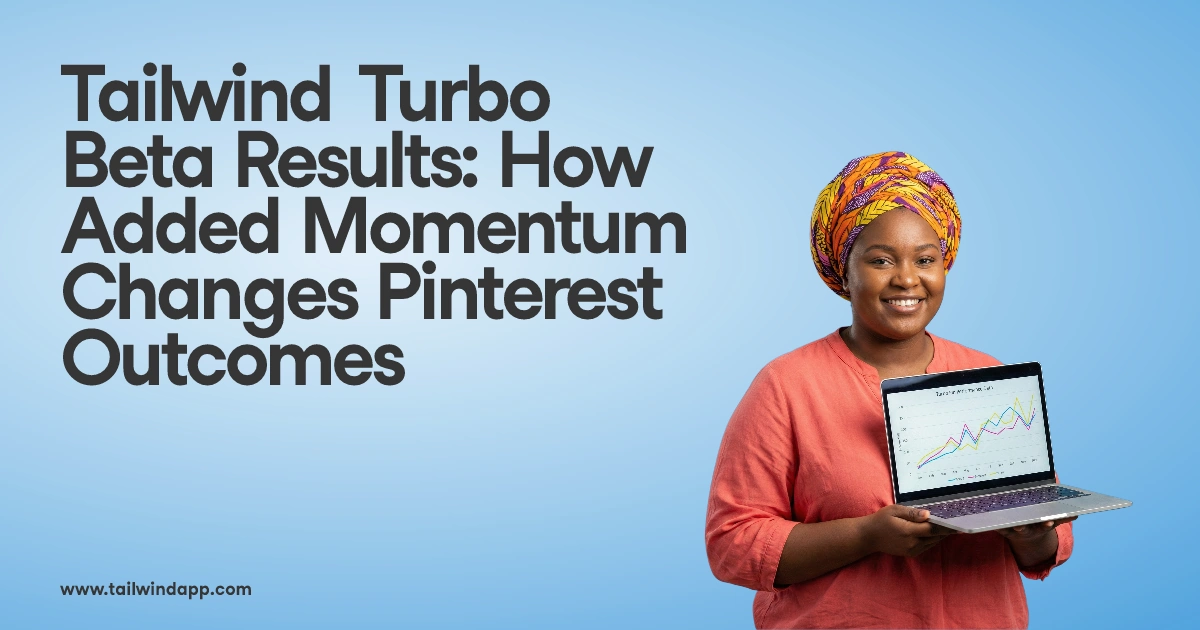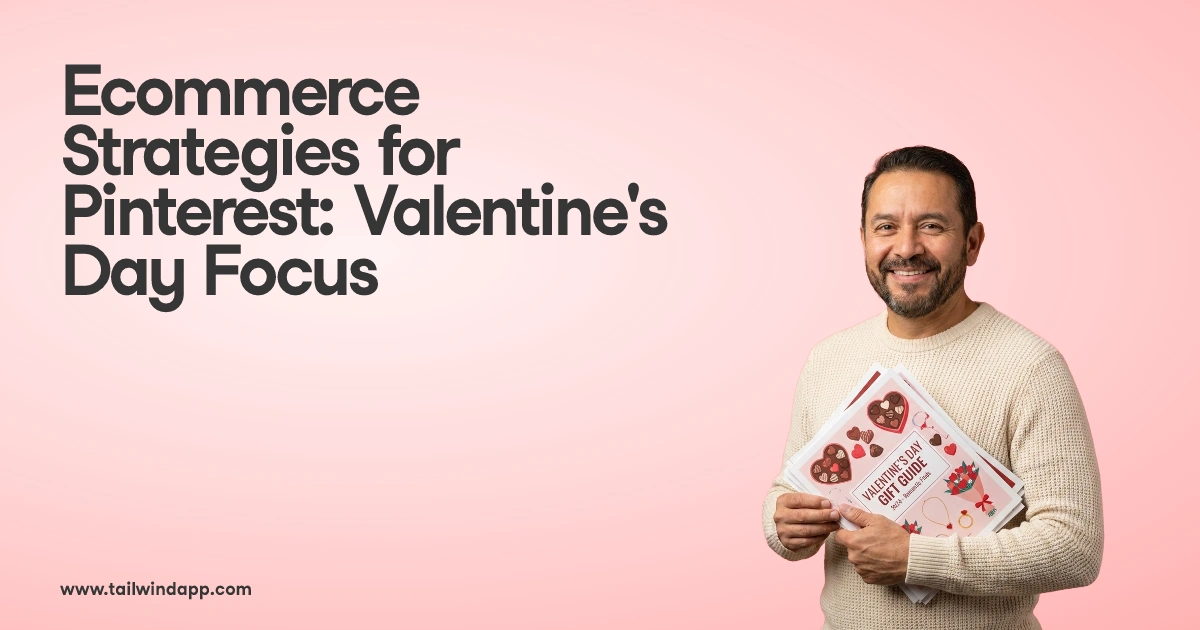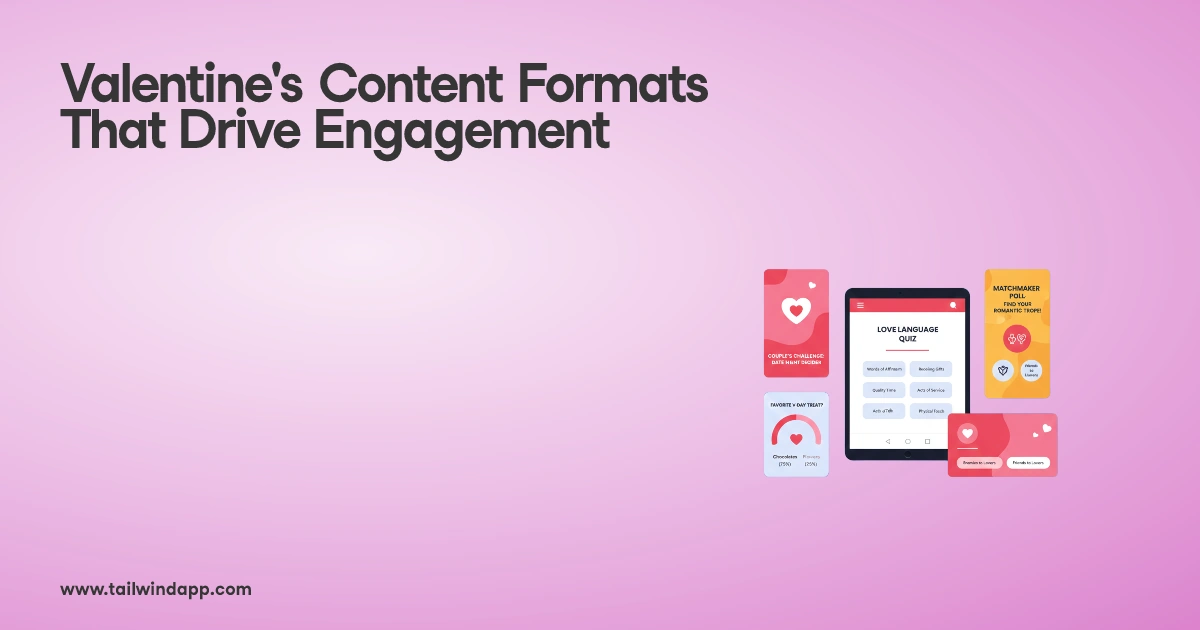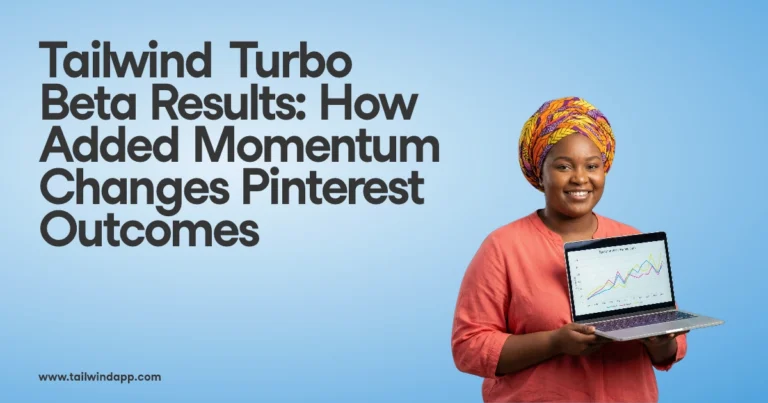
If you’ve ever asked yourself, “can I sell things on Pinterest?” the answer is a resounding YES. In fact, you can multiply your traffic and sales by attracting perfect-fit customers with Pinterest!
And you’re in luck, because Pinterest and online shopping are a match made in Ecommerce heaven.
Using Pinterest to Sell More Products
With 200 million monthly active users, Pinterest is a place where people go to be inspired, to learn about new ideas and products, to plan their best life.
It’s not a social network where users curate a vision of how they want to be seen. It’s a discovery destination that helps people curate ideas to support their own vision of their best possible selves.
All of that inspiration and planning – along with Pinterest’s beautiful images, leads to sales.
In fact, 72% of Pinners say that Pinterest has introduced them to a new product or service and that Pinterest has inspired them to shop when they weren’t actually looking for anything!

Among those using Pinterest weekly, the numbers are even more compelling. Ninety percent of weekly Pinners use Pinterest to make purchase decisions.
And as for traffic, well, Pinterest drives 33% more referral traffic to shopping sites than does Facebook, 71% more than Snapchat, and 200% more than Twitter! Clearly, the potential for YOUR online store on Pinterest is huge.
Boost Your Sales with Tailwind’s Keyword Finder
Selling on Pinterest is all about reaching the right audience, and this advanced keyword tool makes it easy. Discover the search terms your potential customers are using and optimize your pins to drive more clicks and conversions.
Take the guesswork out of SEO and let Tailwind help you connect with shoppers.
Pro Tip: There’s a smoother way to stay consistent on Pinterest—try the Tailwind Pinterest Extension and keep pinning while you browse.
Why Pinners May Be Your Perfect Customers
Then there’s the overall makeup of the typical Pinner. Seven in ten moms are on Pinterest – and we all know who makes most of the purchasing decisions at home!
If you feel like a bit of an underdog on other networks, Pinterest is for you! Ninety-seven percent of searches are unbranded, meaning Pinners are open-minded and eager to discover something new.
It also means you have an opportunity to reach people much earlier in their decision-making process.
Understanding this important difference in the way people search on Pinterest compared to say, Google or Amazon, is key to getting your products discovered and increasing your sales.
9 Strategies for How to Sell on Pinterest
The investment you make today in great images, compelling descriptions, and high-converting landing pages can pay off for months and years to come.
In fact, while most of your reach on social networks occurs in 24 hours of posting, on Pinterest “half of site visits take place 3.5 months after the first pinning, while half of orders take place 2.5 months after the pinning,” says Pinterest.
This also means that when you decide to use Pinterest to sell more, you should be patient, realizing that, as in life, overnight success on Pinterest is the exception rather than the rule – but with consistency, sales and success WILL come.
#1: Use Keyword Research to Find the Best Product Keywords
When people search on Pinterest (and there are 200 BILLION searches per month), they’re not usually looking for something specific. In one recent Pinterest webinar, the presenter said, “I don’t go to Pinterest to find Nike shoes. I go to Pinterest because I don’t know how to dress myself!”
So, if you are using the same keyword list for Pinterest that you use for Google, it’s time to branch out.
“Getting your business to show up online in unexpected, yet still relevant places, can increase the likelihood of people saving your Pin or clicking on your ad,” suggests Pinterest.
While you should certainly use your product keywords, you’ll find some less direct keywords will also be very helpful. Start with your typical words and work your way out. Need an example?
Let’s start with the example of Nursery Bedding. What’s one step beyond a search for “nursery bedding”? You could look at it from a couple of different perspectives:
- The expectant parent might look for this when they’re in a place where they’re ready to consider nursery bedding:
- Nursery ideas
- Decorate a nursery
- Baby’s room ideas
- How to plan for baby
- What to buy when you’re expecting
- First-time parent tips
- Someone looking for gift ideas for the parents to be might search:
- Baby shower gift
- Baby shower gift ideas
- Unique baby shower gift
- Ideas for new parents
Pinterest gives us a great tool in its guided search bar, which can help you expand your keyword ideas. Just enter a keyword, like “nursery ideas” into the search bar and hit enter.

Clicking on any of the relevant tiles will likely give you even more options. These are words that Pinterest says people search in connection to your original search term. Use this method to build out your Pinterest-specific keyword lists.
#2: Optimize Your Pinterest Business Profile
While more action happens in search than anywhere else, that’s no reason to neglect your profile. Especially if you are linking to your profile from your site, in email newsletters, and elsewhere, you’ll want it to look good.

Use your keywords when choosing your username. Remembering that 97% of searches are unbranded, unless you’re an unmistakably famous brand, consider leading with keywords. For example, rather than just “My Brand Name,” try “Home Furnishings | Nursery Bedding | Decor – My Brand Name.”
Use your keywords in your profile description as well. Write in natural language, not attempting to “keyword stuff.” Read more about the new Pinterest business profile, including how to set up your cover photo here.
There are a couple of simple, but important technical steps you can take to give your products and content a better chance of appearing in relevant search.
- Make sure you are using a business profile. Not only is this a requirement if you are promoting your business on Pinterest, but business profiles also provide certain advantages over personal accounts, namely:
- Access to analytics.
- The ability to claim your website (which gives you a distribution advantage).
- Access to Pinterest advertising.
- Confirm or “claim” your website.
- Apply for Rich Pins.
#3: Highlight Your Products with Pinterest Boards
Forget the “80/20” or “20/80” rule. There may be, in theory, no reason you have to Pin anyone else’s content to your Pinterest account. “Sacrilege!” you say? It’s true. Sarah Hoople Shere, Head of Product Marketing at Pinterest, confirmed this for us.
Create One Board to House All of Your Content
You can and should Pin your content to more than one Board. It’s good practice to have one Board that contains all of your blog and catalog content and nothing else. You’ll likely find that Board, being a unique resource in the Pinterest universe, performs well in terms of engagement and traffic.
Create Niche Boards to Showcase Your Blog Posts and Products
Let’s say you sell and/or blog about vintage women’s clothing, accessories, jewelry, and home decor. You might have the following Boards (among others):
- Unique Vintage Clothing and Accessories – Brand Name Here
- Vintage Women’s Clothing
- Vintage Women’s Accessories
- Vintage Jewelry
- Vintage Home Decor
When you add a new necklace to your site, you’ll share it to the most relevant Board first to give Pinterest the most specific signal about what your content is so that they can display it in the most relevant searches and feeds. So, in order, share it to:
- Vintage Jewelry
- Vintage Women’s Accessories
- Unique Vintage Clothing and Accessories – Brand Name Here
Vintage Home Decor
To avoid giving Pinterest mixed signals (which could hurt your distribution and search placement), do NOT Pin your new listing to the irrelevant Vintage Home Decor Board.
Each time you create new content – whether product listing or blog post – make sure it has several relevant, specifically-named “Homes” on your profile. If you need to create new Boards along the way, go for it!
This one is so important, and it’s worth repeating: Share new content immediately and to the most relevant Board first, then schedule it to go to the other relevant Boards over time. Ideally, for an SEO boost, you’ll change the description each time you share your Pin. Try to make it tightly relevant to the Board title.
You’ll want to make sure you schedule your new content to all relevant Boards right away so you don’t forget! Grab a free trial of Tailwind for Pinterest now and get your new content out and scheduled with Board lists and interval Pinning so it gets on to every relevant Board with natural spacing and at the best times for engagement.
Board Descriptions Matter – But Not For the Reason You Might Think
Have you ever searched Pinterest for a Board? If you try it, you might notice, as I have, that the first results are often Boards with no description at all. So, then, are they really important?

Yes! You see, Pinterest looks at several signals to determine where your content should show up in search and other feeds.
One of those is your Board description. Creating keyword-rich Board descriptions will help surface your Pins in applicable searches and feeds. So spend some time on them!
#4: Post Consistently on Pinterest
Pinterest favors content by Pinners they call ‘Active Creators.’ Aim to create new content weekly. Pin consistently – daily.
There is no maximum number of acceptable Pins per day, but aim to share quality content that will engage your audience, rather than aiming for an arbitrary number of Pins per day.
On the other hand, don’t let your Pinterest account become inactive because you’re on vacation – use a Pinterest-approved scheduler, like Tailwind!
#5: Create Inspiring and Engaging Pins
Pinterest recently shared their findings from research looking into what works in Pin creatives by your objective.
They shared how Pins for awareness should be different from Pins designed to generate email signups, online sales, or offline sales. Really interesting stuff!
There are some Pin design tips that work well for all objectives:
- Add your logo, tastefully. Added to the top or bottom center of a Pin, Pinners can make out your logo clearly (it won’t get covered by Save or promote buttons) and know this is an actionable Pin.
- Set your product image as the focal point of the Pin – make it the main point of the image.
- Add context. Show how to use your product.
- Make your text overlay bold and clear. Go beyond what it is to add context. Make sure your text is at least 20pt – optimize it for mobile!
- Optimal Pin size is 2:3. 600×900 pixels, for example.
When creating pins, automate your Pinterest strategy to save time and create the perfect pins to advertise your products. Try using Pinterest templates to quickly create beautiful and personalized pins.
Since we’re interested in selling more on Pinterest, these tips will be especially helpful:
- Lean into seasonal events and everyday moments. Whether you’re talking about a time-specific holiday or a recurring everyday moment (think dinnertime or bedtime stories with the kids), bringing in moments can increase your sales up to 20%. This also drives urgency for faster conversions.
- Pins with CTA in the text overlay tend to have a 6% higher online sales lift.
- Include pricing and feature information in your Pin descriptions for an average 28% sales lift.
- Create consistency between the Pin and the landing page visually for an average 13% sales lift.
#6: Repurpose Your Content with Multiple Pins
Did you create a great Pinnable image for your newest product or blog post using some of the tips above? Fantastic! But, why stop with one?
Creating multiple images is a great way to increase the distribution of your content on Pinterest in a way that appeals to a wide variety of your followers and other Pinners.
Try with text overlay and without. Specifically, try a direct call to action in your text, such as, “discover,” “find yours,” “start now.”
Create a collage of products in a category. Share a lifestyle image with product images beneath (lifestyle images often convert better than a straight product shot). Turn user-generated images into stunning Pins that inspire!
When you save a new Pin or reshare one you’ve shared before, try switching up your description to target a new group of keywords for Pinterest SEO.
This will enable your images to appear in more search results!
#7: Collaborate with Other Business Owners
Tailwind Communities are groups of like-minded business owners – usually made up of those who blog about a certain niche topic.
If you have a blog, you can use Tailwind Communities to add in your best content, which your Community Members can then share out – potentially expanding your reach and growing your traffic.
If you’re not a blogger, you might use Communities to find quality content to share to your own account to keep your account active during times when you’re unable to create your own fresh content.
You may also find valuable partners for potential content collaborations in your Community.
#8: Engage Your Followers to Reach New Customers
Sounds a little contradictory, doesn’t it? But, if you want to reach more than just those who follow you, you need to make sure what you’re saving to Pinterest engages your followers. Why is that?

Pinterest serves up your Pins to your followers first. Their engagement – or lack thereof, tells Pinterest how fast and far to distribute your Pin – or not!
If your followers don’t engage, there’s a good chance your Pins won’t appear high in search and in other feeds.
If, on the other hand, it really resonates with your followers, Pinterest gets the signal that this is something worth spreading!
So, how can you engage your followers? Look at what you’ve Pinned that has already proved to be engaging.
In Tailwind’s Pin inspector, you can see which Pins generate the most Repins. In Pinterest analytics, look for the Pins which generate the most clicks.
Whether those Pins are for your own site or they link to other people’s content, you can learn something from each one! Look at the Pin image. Is there something about it that makes it especially appealing?
What about the Pin description? Do keywords or style of writing stand out to you? Maybe it’s a particular topic or trending style that you see over and over in your top Pins. Let that inform your content AND Pinning strategy.
Another key to engaging your followers is to Pin when your followers are most likely to be on Pinterest and engaging.
How do you figure that out? Let Tailwind do it for you! The SmartSchedule analyzes your content and the activity of your followers to generate suggested timeslots for your schedule. Try it out for free!
#9: Advertise Your Products on Pinterest
In a hurry to get started? Pinterest Promoted Pins can help you get in front of a larger audience, fast. Targeting options such as keywords, interests, audiences, locations, gender, and more enable you to pay to reach your best potential customers right away.
Key to your success in Pinterest advertising will be installing your conversion tag so you can target website visitors, enabling tracking so you can tell how ads are impacting sales, figuring out how much to bid, and knowing how to interpret results in the dashboard.
How to Sell on Pinterest – In Conclusion:
The potential of Pinterest to help you sell more with your ecommerce business is enormous – and exciting!
The long-term success of your Pinterest marketing depends on consistent, quality Pinning which engages your followers. Beautiful and inspiring images, effective use of keywords, and niche Boards which showcase your Pins will help your content go far beyond your followers.
Prefer to learn in a webinar? We’ve got you covered. This one-hour, on-demand webinar will walk you through everything you need to know to sell more with Pinterest.








